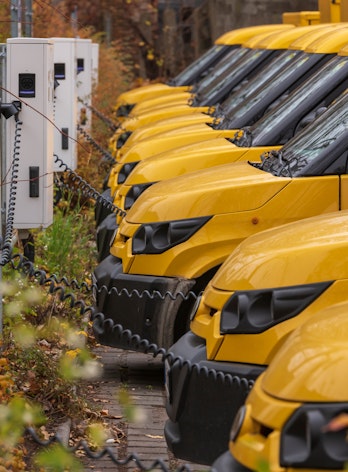Reports
-
- Clean Energy Transitions Programme (12)
- Technology Collaboration Programme (9)
- Energy Efficiency in Emerging Economies (4)
- Digital Demand-Driven Electricity Networks Initiative (3)
- Global Commission for Urgent Action on Energy Efficiency (2)
- Clean Energy Transitions in Emerging Economies (1)
- Designing for fairness (1)
- Electric Vehicles Initiative (1)
- EU4Energy (1)
-
Energy Efficiency 2024
Fuel report — November 2024

-
Energy Efficiency Policy Toolkit 2024
From Versailles to Nairobi
Report — May 2024

-

Global EV Outlook 2024
Moving towards increased affordability
Flagship report — April 2024
-
The Role of E-fuels in Decarbonising Transport
Fuel report — December 2023

-
Energy Efficiency for Affordability
Improving people's lives through delivery of a modern, sustainable energy system in Kenya
Country report — December 2023

-
The Evolution of Energy Efficiency Policy to Support Clean Energy Transitions
Policy report — December 2023

-
Energy Efficiency 2023
Fuel report — November 2023

-
Implementing Clean Energy Transitions
Focus on road transport in emerging economies
Country report — August 2023

-
Facilitating Decarbonisation in Emerging Economies Through Smart Charging
Report — August 2023
-

Tracking Clean Energy Progress 2023
Assessing critical energy technologies for global clean energy transitions
Flagship report — July 2023
-
Using Digitalisation in Emerging Markets and Developing Economies to Enable Demand Response in Buildings
Report — July 2023

-
Energy Efficiency: The Decade for Action
The IEA's 8th Annual Global Conference on Energy Efficiency
Report — June 2023

-
Demand-side Data and Energy Efficiency Indicators
A guide to designing a national roadmap
Statistics report — February 2023

-

Energy Technology Perspectives 2023
Flagship report — January 2023
-
Energy Efficiency 2022
Fuel report — December 2022

-
Coping with the Crisis: Increasing Resilience in Small Businesses in Europe through Energy Efficiency
Proposed Energy Saving Strategies
Report — October 2022
-
Technology and Innovation Pathways for Zero-carbon-ready Buildings by 2030
A strategic vision from the IEA Technology Collaboration Programmes
Technology report — September 2022
-
By 2030 EVs represent more than 60% of vehicles sold globally, and require an adequate surge in chargers installed in buildings
Part of Technology and innovation pathways for zero-carbon-ready buildings by 2030
Technology report — September 2022
-
350 million building units connected to district energy networks by 2030, provide about 20% of space heating needs
Part of Technology and innovation pathways for zero-carbon-ready buildings by 2030
Technology report — September 2022
-
Solar PV and wind supply about 40% of building electricity use by 2030
Part of Technology and innovation pathways for zero-carbon-ready buildings by 2030
Technology report — September 2022
-
Installation of about 600 million heat pumps covering 20% of buildings heating needs required by 2030
Part of Technology and innovation pathways for zero-carbon-ready buildings by 2030
Technology report — September 2022
-
All countries targeted for zero-carbon-ready codes for new buildings by 2030
Part of Technology and innovation pathways for zero-carbon-ready buildings by 2030
Technology report — September 2022
-
The value of urgent action on energy efficiency
Global Conference on Energy Efficiency, 2022
Report — June 2022

-
Roadmap for Energy-Efficient Buildings and Construction in the Association of Southeast Asian Nations
Timelines and actions towards net zero-carbon buildings and construction
Report — April 2022